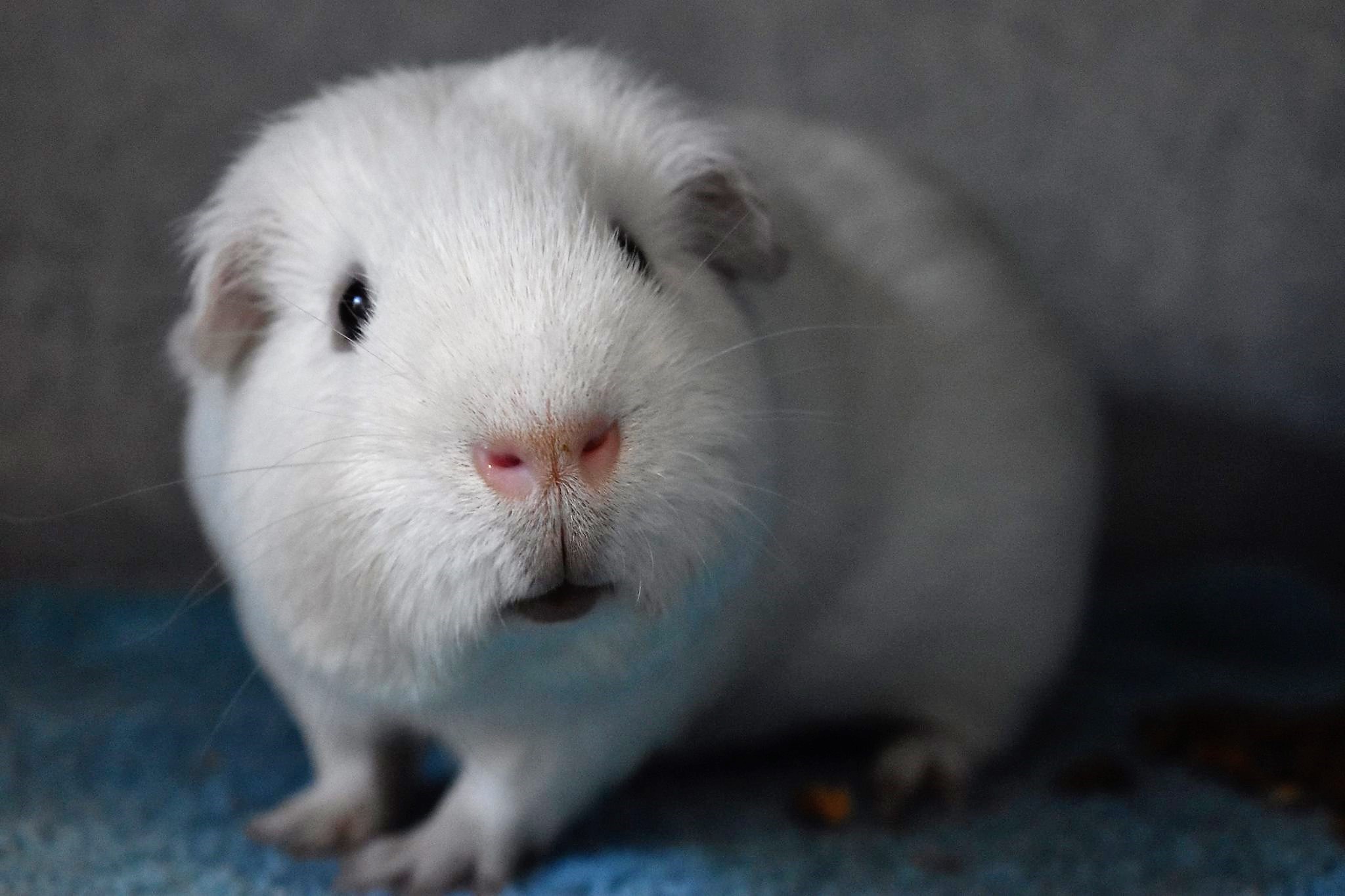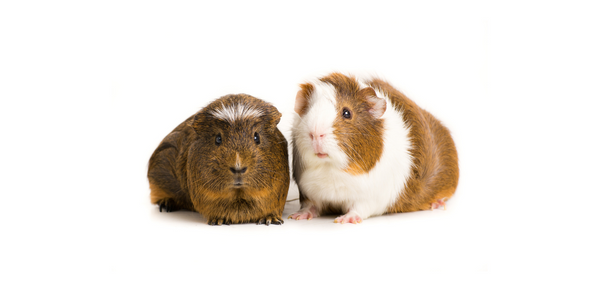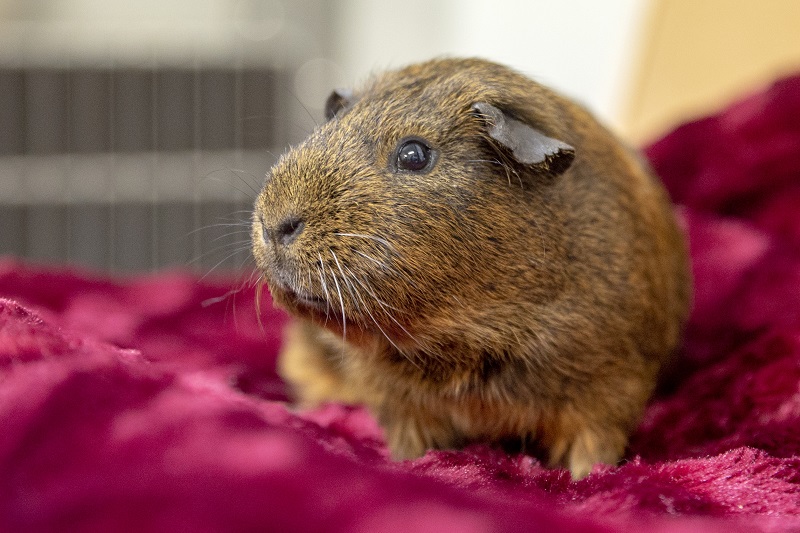Guinea pigs make great pets! From their unique personalities, to their outlandish hairstyles… Here's what you need to know when adopting a guinea pig.
What types of guinea pigs are there?
There are smooth, long or rough coated guinea pigs. These little creatures are native to South America but have become a popular Aussie pet.
Can I just own one guinea pig?
Guinea pigs are social creatures, preferring to spend their days with one companion, or more. Two or more females get along well; so do one desexed male and a group of females.
If you own guinea pigs already, ensure they're housed with the same gender, or desexed. Guinea pigs of different genders should be separated from 3-4 weeks of age to avoid unexpected litters. Females can fall pregnant again straight after giving birth!
Handling your guinea pig
Daily handling and grooming is important in building your guinea pigs' confidence and for developing friendly and social guinea pigs.
It is best to handle guinea pigs when they are young to help them feel comfortable. Make sure that you handle them carefully, securely, and gently. If they want to, you should allow guinea pigs to retreat and hide. Try never to remove them from a hiding area and force interaction or handling with them; they need to feel that their hiding areas are safe and secure.

Where do I keep a guinea pig?
Guinea pigs are susceptible to stress and shock, so it's important to keep them in an environment that is safe and comfortable.
Guinea pigs are naturally active animals, and need a home which is clean, dry, and gives them room to run around to stay happy and healthy. The recommended hutch size is:
- 1m x 70cm for one guinea pig. However, guinea pigs should be kept in groups;
- 1.4m x 70cm for two guinea pigs
- 1.6m x 80cm for three guinea pigs.
Like us, guinea pigs need daily exercise, so make sure you have space for them to run around and explore; a few guinea pig safe obstacles can keep things interesting and encourage activity.
Whilst the kind of bedding that's best will depend on the variety of guinea pig and their environment, as a general rule - a hutch lined with newspaper followed by grass hay will work for most types. If you're planning to keep your guinea pig outdoors, ensure there is adequate fencing and protection from predators and harsh weather. They will also need water and food bowls, as well as hidey-holes.
How often do I clean my guinea pig's enclosure?
What do I feed my guinea pig?
Guinea pigs are natural herbivores. A healthy guinea pig diet consists predominantly of hay, grain mix, and green leafy vegetables, supplemented with fruits and vegetables; particularly those high in vitamin C like red capsicum and parsley. For a treat, guinea pigs love corn husks and fresh herbs!
Vitamin C is an important part of a guinea pig's daily diet, as like us, their bodies cannot produce it on their own. The recommended daily minimum is 20mg. Food sources like grass, vegetables and fruit are preferable, vitamin C supplements aren't recommended unless directed by a specialist veterinarian.
A guinea pig's back teeth never stop growing; chewing hay helps to wear them down and prevents dental problems. Suitable hays like wheat, oat, or barley can be found at produce and pet stores, or vet clinics specialising in guinea pig care. For grain mixes, look for one high in fibre and crude protein and remember fresh is best - they lose nutrients the longer they stay on the shelf. If you can't find a specialised mix, produce stores will often sell horse grain mixes which will satisfy guinea pig nutritional needs.
Exercise and enrichment
Guinea pigs love to explore their enclosure with great sense of space, smell and hearing.
They need exercise, mental stimulation, environmental enrichment (e.g. toys, tunnels etc), and the ability to express their normal behaviours (e.g. social interaction with other guinea pigs, walking, running, tunnelling, exploring, playing, stretching horizontally, retreating to a shelter and hiding, foraging, chewing, gnawing, and jumping).
Summer care for your guinea pig
In the hot summer months, it's important that guinea pigs stay cool as their cage will limit their ability to get out of the sun and they are prone to quickly overheating.
If your guinea pigs live outdoors, move hutches out of direct sunlight. Whilst an adequate water supply is essential year-round, it's especially important as the weather heats up. Placing a brick or tile in the hutch will provide a cool spot for your guinea pig to lie down and cool its tummy. Wetting or placing an ice pack on the surface will provide extra cooling on particularly hot days.
Guinea Pig Health Care
Ulcerative pododermatitis, otherwise known as swollen footpads, occurs when there is a lack of cushioning on your guinea pig's hutch floor. This can be prevented by ensuring that their hay layer is adequately thick, or have a solid floor base.








